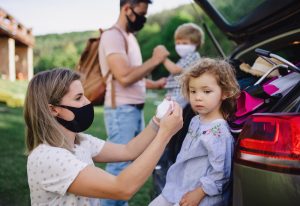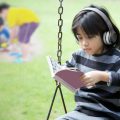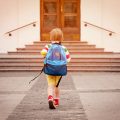 If you’re parenting during the pandemic, you probably don’t need a scientific study to tell you that the spread of Covid-19 impacted your family in some way. Parents and caregivers were placed in incredibly challenging positions with the threat of a serious virus, school and daycare closures, and the demand to either work from home or go to work while combating a loss of child care. Needless to say, the past few years have not been easy, and children and families are still trying to find stability in an ever-changing world.
If you’re parenting during the pandemic, you probably don’t need a scientific study to tell you that the spread of Covid-19 impacted your family in some way. Parents and caregivers were placed in incredibly challenging positions with the threat of a serious virus, school and daycare closures, and the demand to either work from home or go to work while combating a loss of child care. Needless to say, the past few years have not been easy, and children and families are still trying to find stability in an ever-changing world.
Over the last few months, hundreds of studies have been published that focus on the impact of the pandemic on child development. Below you’ll find a summary of some of the most important findings, and thankfully – you’ll also find some good news from child development experts!
Highlights:
|
How is the Pandemic Shaping Kids’ Brains and Behavior?
First, it’s important to note that the pandemic did not affect all families in the same way. For instance, some kids may have received better attention due to parents spending more time at home, while others had caregivers who weren’t as available for meaningful interactions. In many of these studies, children of color and low-income families appear most at risk.
One lab at Brown University was able to stay open during the pandemic and continue work on a longitudinal study exploring environmental impacts on babies’ brains. These researchers are tracking motor, visual, and language skills in a seven-year examination on early childhood development. Several tests measuring these skills found that pandemic-born babies scored almost two standard deviations lower than those born before it.
Sean Deoni, a medical biophysicist who led the study, believes that these setbacks may stem from a lack of human-to-human interaction. In addition, babies and toddlers aren’t getting as much gross motor practice as they typically would due to decreased playtime with peers and on playgrounds.
In a comprehensive review of more than 63 high-quality studies on child development, researchers at the University of Michigan found that children’s in-person learning environments had to change to enhance safety, and these changes were not conducive to learning and social skill development. For example, traditionally, kids are taught to share at this stage, and throughout the pandemic, children were urged not to share toys to prevent the spread of the virus. This also made it more difficult for them to make friends and learn how to deal with conflict. They also found that remote learning was challenging for children, families, and teachers, resulting in significantly less learning time and lower-quality instruction.
Now, all of this certainly sounds very scary! However, experts say that there’s no need to panic and there are still many reasons to be optimistic.
On-Demand Class: Parenting During the Pandemic – Help Your Child Through Covid Anxiety
The Good News
Researchers and child development experts from all over the world are confident that children can overcome these challenges. Parents and caregivers need to be aware of this research and understand patterns that can lead to delays in development, but at the same time, they also need to remember that kids are resilient and can bounce back.
“Children are a product of their environment,” Deoni says. “The more that we can stimulate them and play with them and read to them and love them — that’s what it’s going to take.”
Even though we have excellent reasons to be optimistic about kids recovering from these setbacks, we also know that this wild ride isn’t over yet. Parents are still juggling school closures and quarantines, hospitalizations of family members, remote learning, and overwhelming schedules.
It can be tough to remember to read one more story, play one more game, or make that hug last a bit longer. However, research shows that making a conscious effort to provide the special attention, meaningful interactions, and love that kids need can make a huge difference at this challenging time.
Back







